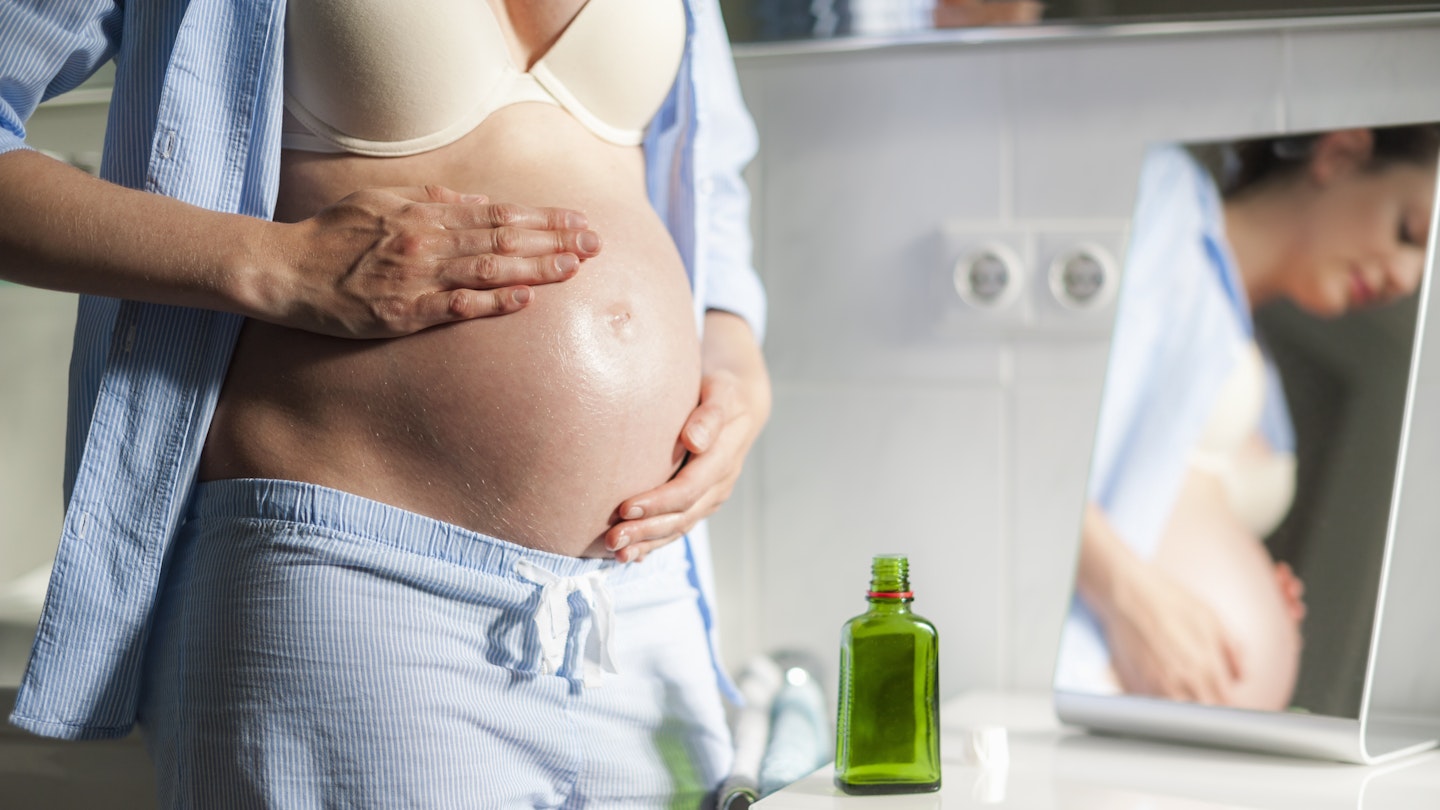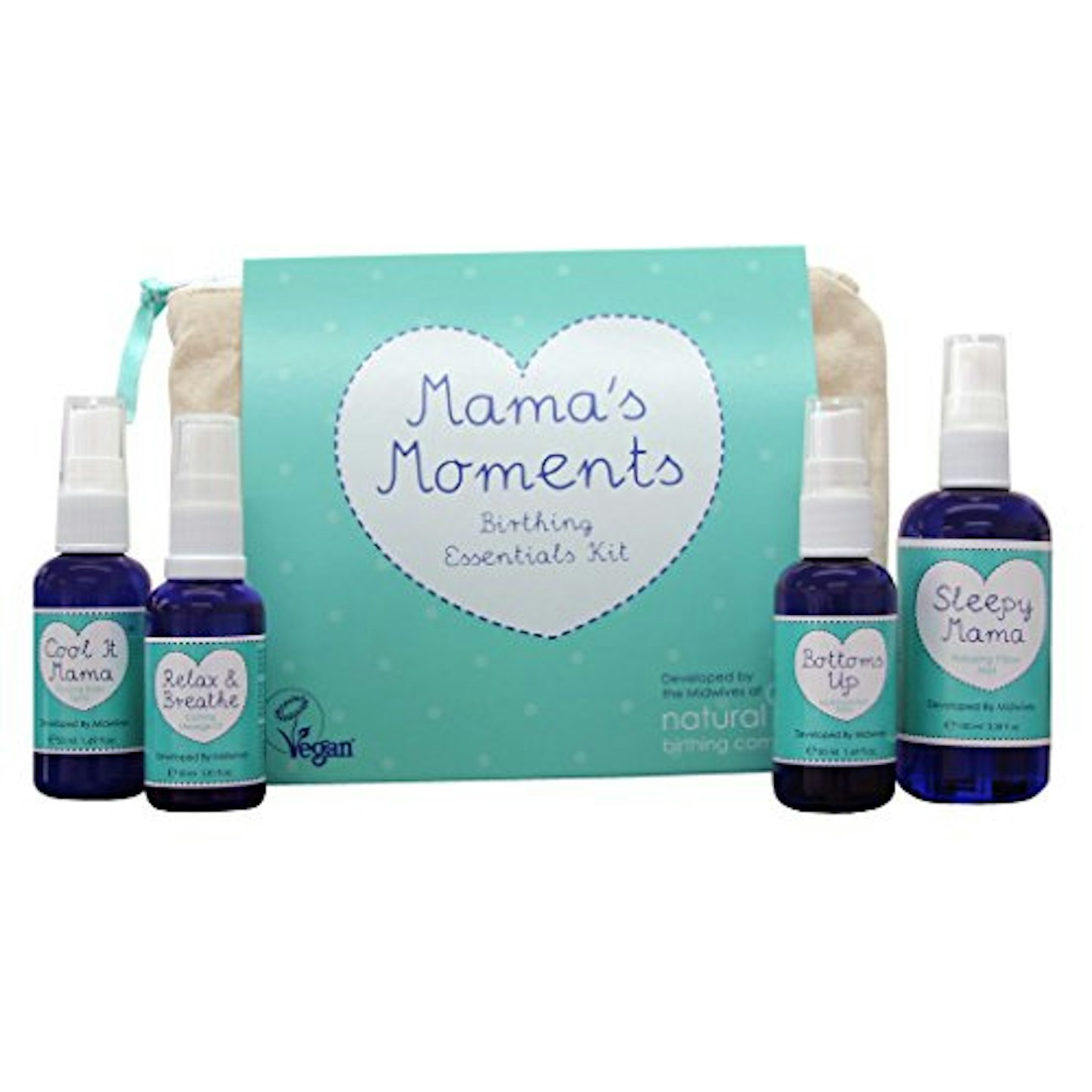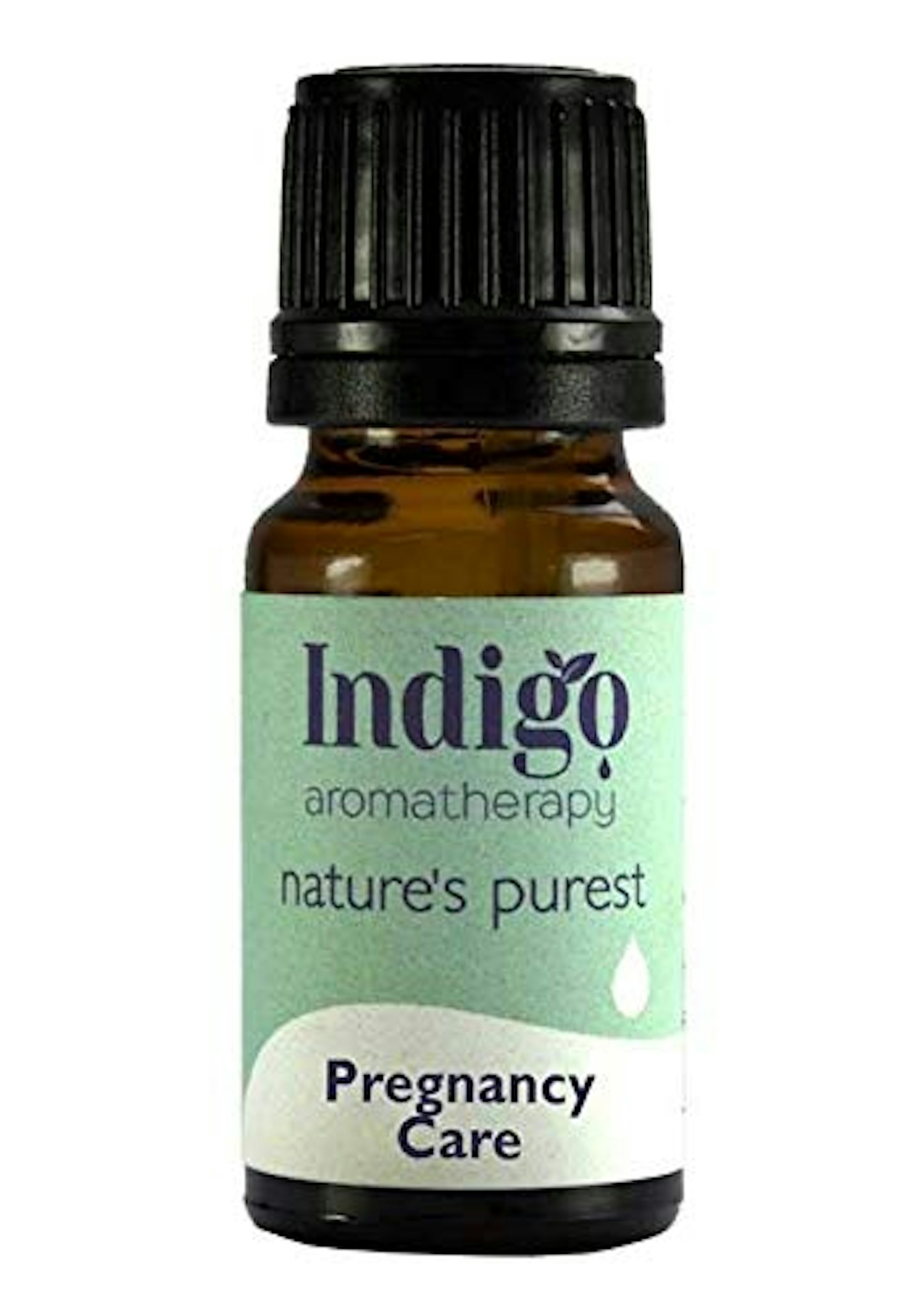Essential oils are popular for helping with all manner of things, whether that's stress, nerves, aches and even skincare. But which essential oils are safe in pregnancy? And how do you even use them?
We spoke to Marnie Fedorowycz from Sense Massage Therapy, who has been working in aromatherapy for over 20 years, to find out everything you need to know.
What exactly are essential oils?
‘Essential oils are extracted from plants parts such as trees, shrubs, flowers and roots. The extraction methods can vary depending on the plant. Once the plant part has been attained essential oils can be obtained by steam distillation, vacuum distillation or cold compress,’ explains Marnie Fedorowycz, trained aromatherapist. ‘After distillation what remains is a concentrated oil or resin with varying characteristics and actions. Essential oils are used in varying industries such as medicine, perfume, cosmetics soaps as well as many others.’
Which essential oils are safe in pregnancy?
It is important to be very careful when using any substances on your body during pregnancy as the body absorbs products and oils through the skin. ‘Once in the circulatory system, all substances will reach the placenta which nourishes the growing baby,’ says Marnie. ‘Due to the fact that Lavender has been extensively researched and is very common, this is a great oil to use in pregnancy, plus Lavender has anti-inflammatory and antiseptic properties, it can help with burns, insect bites and spots. As well as helping with relaxation, insomnia, depression, and restlessness.’
If for some reason you don't like the smell of Lavender, Marnie recommends geranium. 'It has a beautiful floral scent and is good for use in pregnancy, in particular for swollen legsas it is good for the circulation.'
Does this differ by trimester?
For safety reasons any massage or essential oils are not normally recommended in the first trimester, to avoid any risk of miscarriage. 'For later trimesters massage and oils can be used, but only within the recommended guidelines,' Marnie says.
What essential oils shouldn’t I use and why?
‘When looking to use essential oils during pregnancy we must first consider all the safety aspect as some oils must be avoided during pregnancy’
List of Oils to be avoided:
-
Aniseed
-
Mugwart
-
Arnica
-
Basil
-
Camphor
-
Cedarwood
-
Clary Sage
-
Cypress
-
Fennel
-
Hyssop
-
Jasmine
-
Juniper
-
Marjoram
-
Myrrh
-
Origanum
-
Pennyroyal
-
Peppermint
-
Rose
-
Rosemary
-
Sage
-
Thyme
-
Wintergreen
‘These oils are described as emmenagogue; substances that stimulate or increase the menstrual flow,’ explains Marnie. ‘Lavender and Camomile are also described as emmenagogue however have been found to be beneficial when well diluted in carrier oils such as almond oil or rapeseed oil at a concentration of 1%.'
What is a carrier oil?
A carrier oil is used to blend the essential oil. Essential oils are highly concentrated and need to be diluted within a carrier oil.
Common carrier oils are:
-
Almond oil
-
Grapeseed Oil
-
Sweet Almond Oil
-
Jojoba Oil
-
Olive Oil
-
Fractionated Coconut Oil
-
Coconut Oil
‘As with all blends a patch test should be applied to the client to ensure that no allergies or reactions will manifest,’ recommends Marnie.
What are the benefits of using essential oils in pregnancy?
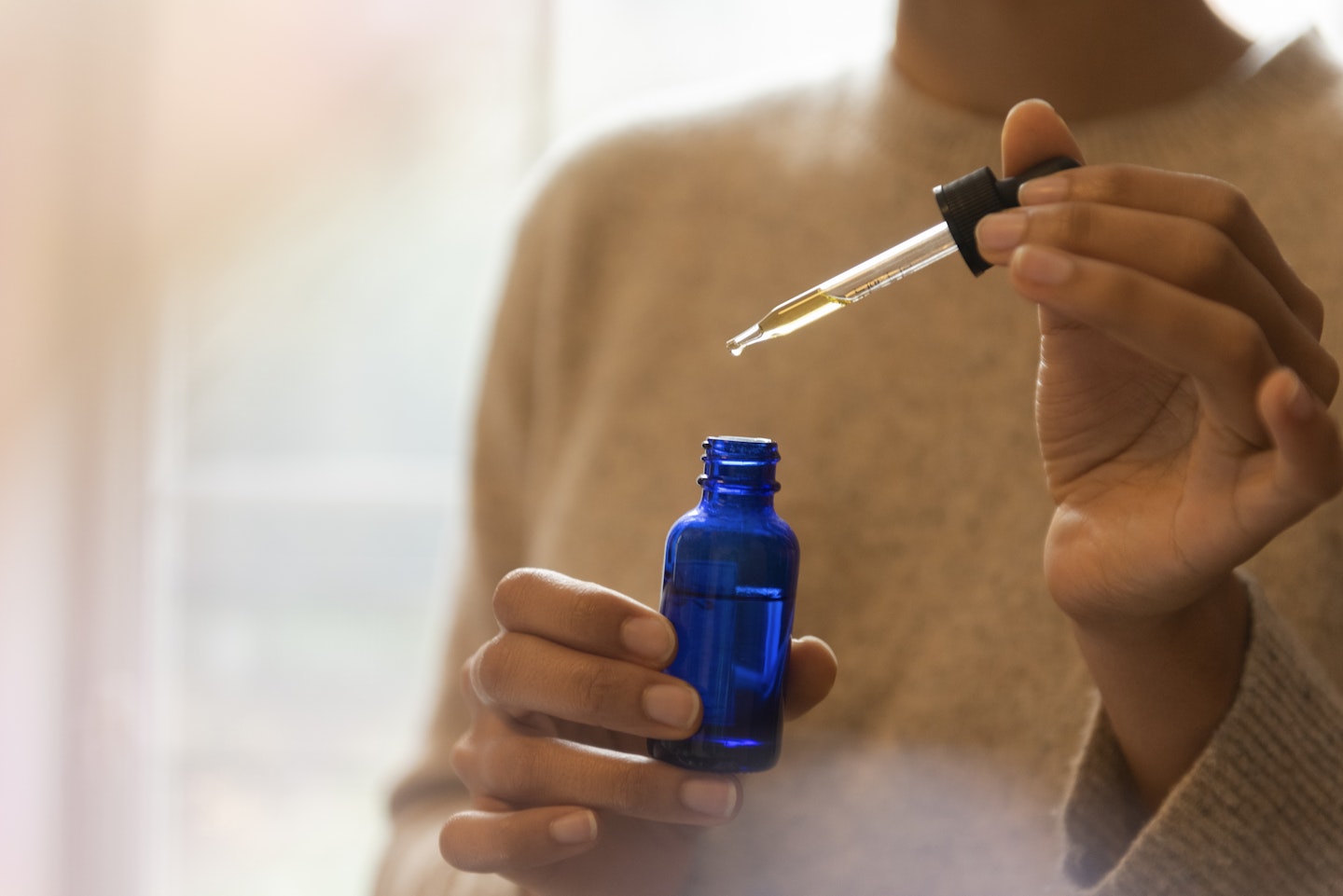
If you're wondering what use essential oils will actually be for you, the answer is plenty! ‘Pregnancy can bring with it some complications and discomforts which can be alleviated by the use of essential oils,' says Marnie. 'A qualified aromatherapist will assess which oils will be most suitable for the conditions their clients are experiencing. For example, blends can be created to reduce backache, swollen legs, fatigue and anxiety.’
What is the best way to use essential oils?
So you've got your essential oils. But how do you actually do with them? ‘Essential oils can be blended in a carrier oil for massage or can be used in a diffuser,' says Marnie. 'Other uses include skincare, cleaning and hygiene.'
'When applying to the skin a patch test should always be carried out and for pregnant ladies, the quantities should be reduced down to 1 or 2% in carrier oil when being used for massage. In a standard 10 ml bottle 2 drops of essential oil would be added. 3 to 4 drops can be added to a diffuser, try to avoid the diffuser drying out.’
Where is the best place to buy essential oils for pregnancy?
‘Any good retailer and many high street shops are stocking common essential oils to suit most people, for example, Holland and Barrett' recommends Marnie. 'If you are looking for a specific oil check the supplier is linked with an aromatherapy accredited body such asComplementary Therapists' Association(CThA) to ensure good quality oils.’
Do I need an oil diffuser?
‘Becoming associated with a particular smell to help, for example, relaxation can be a wonderful tool for pregnant women to train the mind to link the smell with relaxation. Also depending on which oils are used will deliver different benefits,' explains Marnie. 'The diffuser oils are inhaled so the same safety rules apply when using a diffuser as we have mentioned above. It’s a personal choice but a diffuser can bring many benefits and you can enjoy beautiful scents throughout your home to help relax and keep the air fresh.’
Natural Birthing Company Mama's Moments Birthing Essentials Kit
The ultimate care package for pregnant women or women that have just given birth, Mama's Moments Birthing Essentials Kit contains Four 'Go To' Essentials:
Cool it Mama - the perfect companion in labour for cooling and calming you.
Relax u0026 Breathe - a massage oil that contains a blend of essential oils to help calm, soothe and relax your body and mind.
Bottoms Up - perineal spray bottle provides instant relief to your sore vulva and perineal area following childbirth by soothing, cooling and calming the area.
Sleepy Mama - Relaxing Pillow Mist that brings the feeling of relaxation to both body and mind when you need it the most.
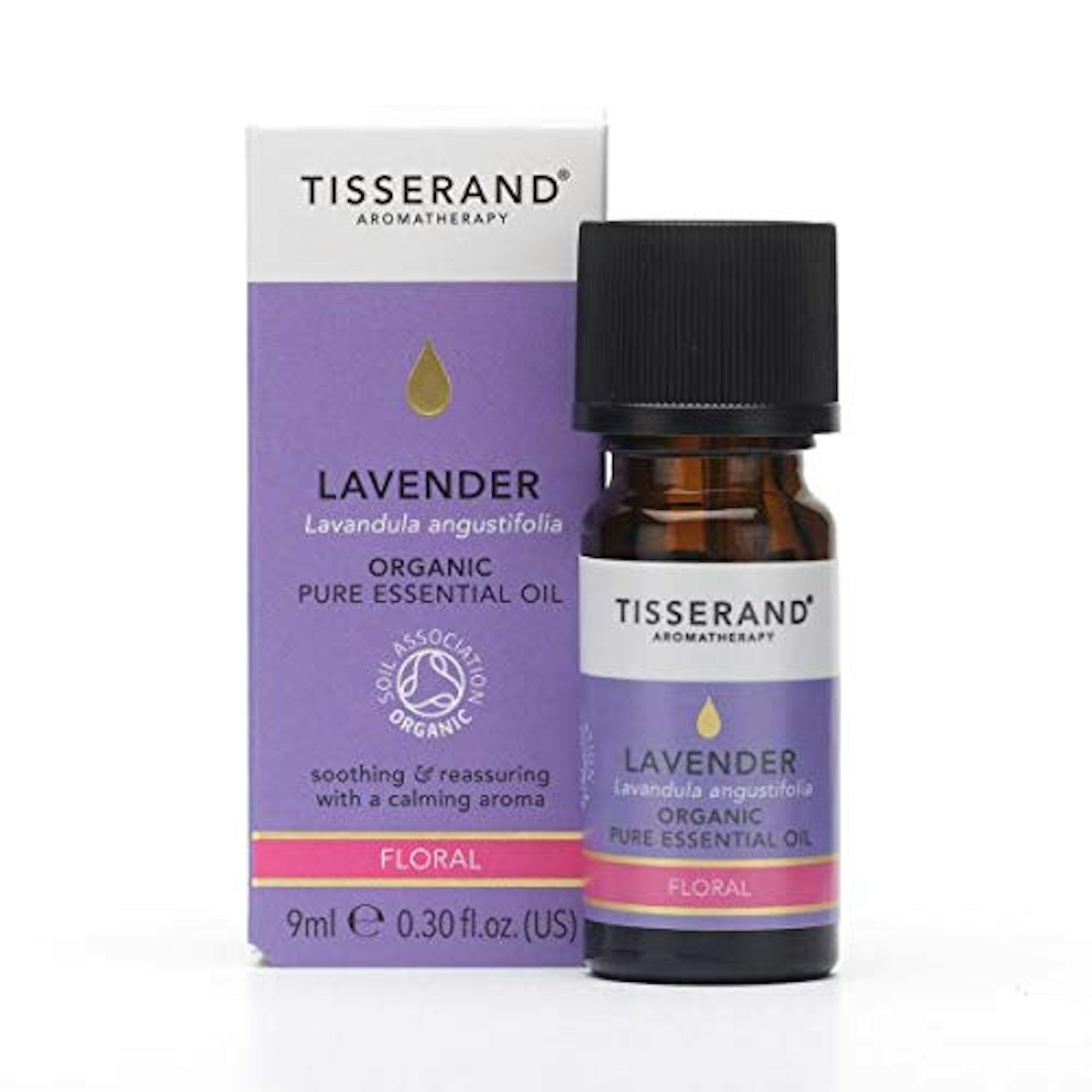
In massage blends, this lavender essential oil it helps ease muscular aches, pains and stiffness or cramps after physical activity. It can also be used for soothing cuts or minor grazes, as well as dry skin. The soft and comforting aroma of Lavender soothes anxiety, improves relaxation and helps sleep.
Suitable for use in the 2nd and 3rd trimester of pregnancy, this soothing mix combines the essential oils of Lavender, Geranium and Mandarin helping you to create a mood of calm, serenity and wellbeing.
Pregnancy Care essential oil can be used in the bath, or it can be vaporised in an oil burner to create an uplifting and calming atmosphere. It can be added to a massage oil or cream and used as a nurturing body oil. Use 6-8 drops per bath and 10 -18 drops per 30ml of carrier oil.
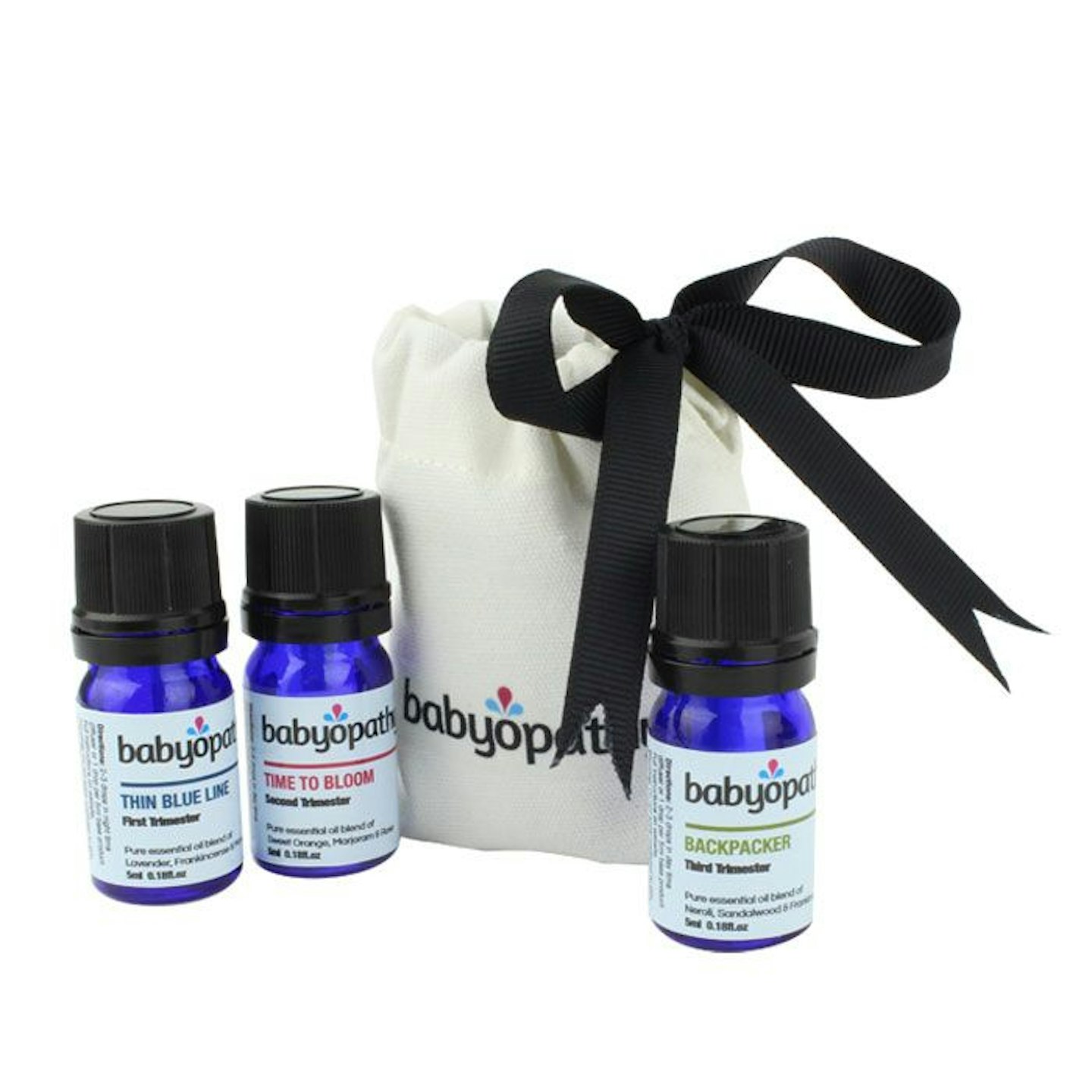
go.skimresources.com
This lovely set contains three pure essential oil blends that will nurture mind and body and soothe discomforts through each stage of your pregnancy journey.
You'll recieve:
For Trimester 1 - Thin Blue Line essential oil with Lavender, Frankincense and Mandarin to aid relaxation, support healthy sleep patterns and soothe the tummy.
For Trimester 2 – Time to Bloom essential oil with Sweet Orange, Marjoram and Rose to support energy levels and a relaxed, uplifted state of mind as your body blossoms and blooms.
For Trimester 3 – Backpacker essential oil with Neroli, Sandalwood and Frankincense to soothe your mind and aid relaxation, enabling you to ‘rest and nest’ in those final few weeks.
